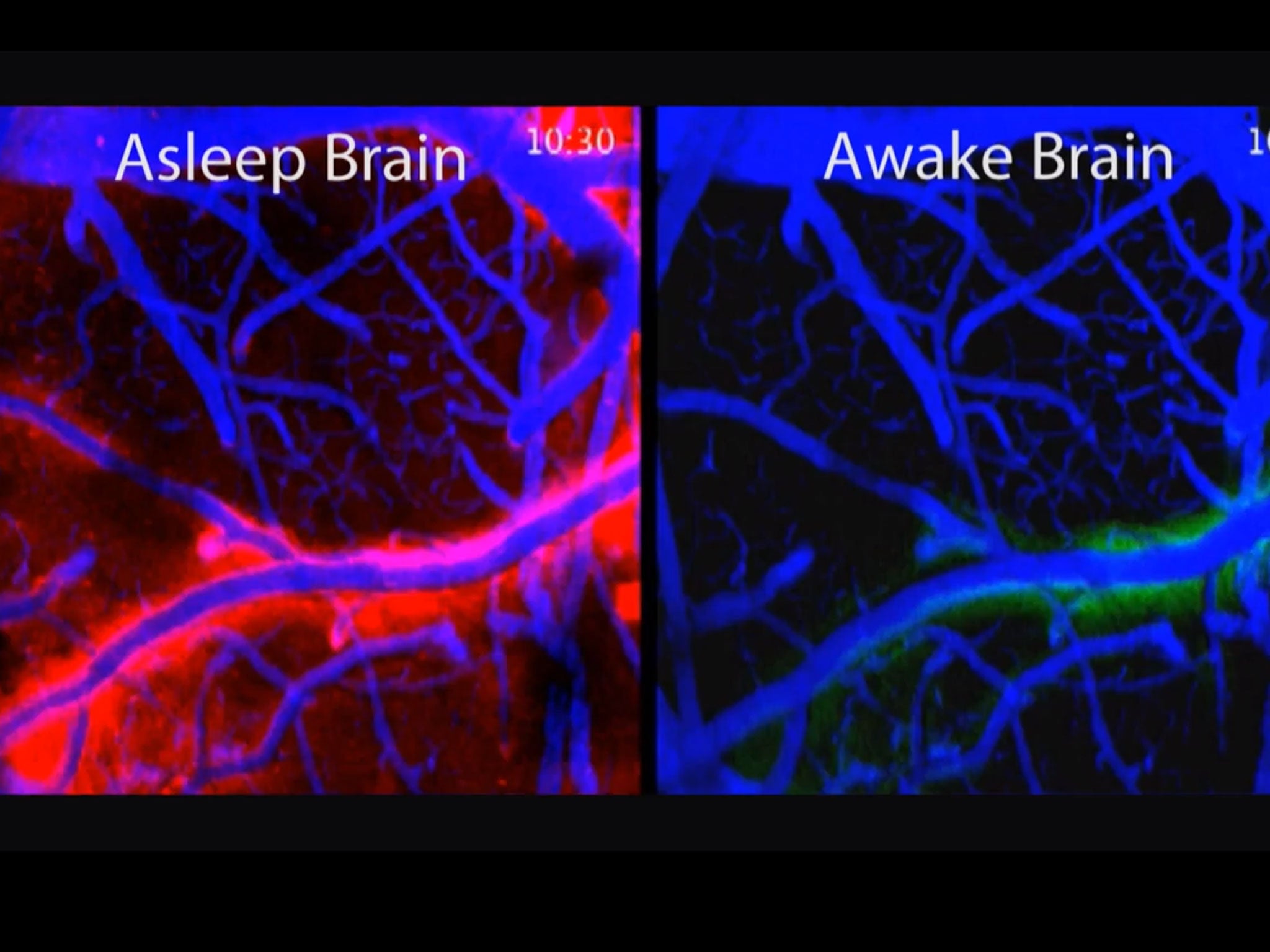Sleep 'cleans' the brain by flushing out toxins
Scientists have discovered the brain has its own 'waste removal system' that carries out toxins as we sleep

The brain uses sleep to clean away waste toxins that have collected during the day, a new study has shown.
The brain uses the time we spend asleep to remove all the waste that builds up when we are awake, much like a "garbage removal system", the US based scientists found.
A team at the University of Rochester Medical Center (URMC) for Translational Neuromedicine now believe this waste removal system is one of the fundamental reasons for why we sleep.
The study, published today in the journal Science, reveals that the brain’s unique method of waste removal also clears away toxins responsible for Alzheimer’s disease and other neurological disorders.
Scientists studied images of the brains of mice, looking at the brain 'plumbing system' used to transport waste material out of pipes while we sleep, known as the glymphatic system.
The glyphatic system was ten times more active when the mice were asleep, as opposed to when they were awake.
Researchers found that when asleep, the brain's cells reduce in size, making it easier for waste to be removed effectively.
To flush waste toxins out of the brain, cerebral spinal fluid (CSF) is pumped through the brain's tissue, where it makes its way into the blood circulation system before reaching the liver.
However, pumping CSF fluid requires a large supply of energy. Researchers speculated that the process of cleaning may not be compatible with the functions the brain must perform when awake and actively processing information.

Dr Maiken Nedergaard, lead author of the article explained: “The brain only has limited energy at its disposal and it appears that it must choice between two different functional states – awake and aware or asleep and cleaning up.
“You can think of it like having a house party. You can either entertain the guests or clean up the house, but you can’t really do both at the same time.”
The new findings have significant implications for treating 'dirty brain' diseases such as Alzheimer's, Dr Nedergaard added.
“Understanding precisely how and when the brain activates the glymphatic system and clears waste is a critical first step in efforts to potentially modulate this system and make it work more efficiently,” she said.
Join our commenting forum
Join thought-provoking conversations, follow other Independent readers and see their replies
Comments
Bookmark popover
Removed from bookmarks